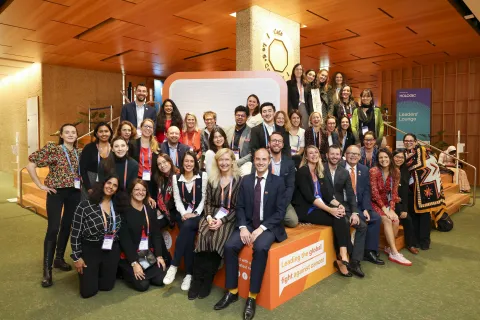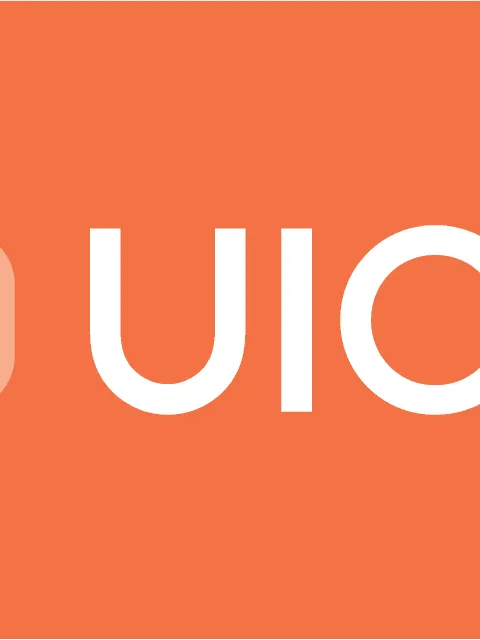90 years of working toward closing the gap in cancer care around the world

UICC is excited to celebrate 90 years of working to lower the incidence of cancer and improve chances of survival for everyone, everywhere.

HIGHLIGHTS
- UICC has been working towards closing the gap in cancer care around the world for 90 years.
- Despite significant progress in cancer control, there are still major disparities in cancer care between high-income and low- and middle-income countries.
- UICC is calling for increased investment in cancer control and universal access to cancer care as part of a global effort to achieve equitable and sustainable cancer control for all.
2023 will be a very special year for UICC, as the organisation marks 90 years of serving the cancer community and looking ahead to reduce the number of lives lost prematurely to cancer around the globe.
In the coming months, UICC will unveil a refresh of its brand identity, roll out a new design for its website and launch a new online community for its members.
UICC also aims throughout the year to publish testimonials from members, partners and people with cancer who have been part of UICC’s journey, and take the opportunity to thank the cancer community on various occasions.
A brief history of UICC
At the beginning of the 20th century, there was a growing recognition for the need for international cooperation in the campaign against cancer. At the International Medical Congress in Madrid in October 1933, it was decided to establish a permanent international organisation against cancer: the Unio Internationalis Contra Cancrum, known under the acronym ‘UICC’ and in English later as Union for International Cancer Control.
Since this time, all International Cancer Congresses, later known as the World Cancer Congress, have been convened by UICC.
The first general assembly of the new organisation was held in Paris in 1935, with representatives from 67 national cancer organisations and 43 countries. Justin Godart of France was elected President and he remained at the helm of the organisation until 1953, with UICC moving its headquarters to Geneva, Switzerland in 1948.
From its earliest history, UICC has been dedicated to supporting organisations on the ground with several knowledge sharing and capacity building initiatives. The Fellowships programme, which is still ongoing, dates back to 1962 and has adapted to the current global context with a virtual offer.
UICC’s heritage is also strongly anchored in research and science. In 1953, UICC established a Special Committee on Clinical Stage Classification under the Chairmanship of Prof. Pierre Denoix, who had developed between 1943 and 1952 what has become the globally recognised standard for classifying the extent of the spread of cancer tumours in a person’s body: the TNM Classification of Malignant Tumours (TNM). UICC has since continuously updated and published the TNM Classification, now in its 8th edition.
In 1966, UICC also established the International Journal of Cancer, universally recognised as a leading publication for original papers and review articles covering the full spectrum of topics in clinical and experimental cancer research.
“It is humbling to look back at the 90 years of incredible history of UICC, to follow in the steps of 22 eminent presidents, and to see how our work has supported the incredible progress that has been made in cancer control. For me personally, a significant achievement has been recognition of the need to care for the patient as well as treating the disease. Importantly, many people diagnosed with cancer are living longer and doing so with an improved quality of life, but there remains much work to be done, especially to improve equitable access to care, and the essentials for cancer survivorship so that all people enjoy improved outcomes, no matter who they are or where they live. UICC – together with its members, partners and network of organisations – is committed to tackling these challenges as we celebrate our 90th anniversary and striving for that shared vision of a cancer-free future, as we approach our centenary.”
– Prof. Jeff Dunn, AO, President of UICC
Decades of progress – and inequity – in cancer control
In these past 90 years, cancer prevention, treatment and care have also expanded considerably and made extraordinary progress – even if, sadly, that progress is far from equally shared.
Indeed, better knowledge of risk factors, widespread routine screening programmes for common cancers (cervical, breast, prostate and colorectal), incredible progress in imaging and detecting and diagnosing cancers at earlier stages, vaccination of girls and boys against the human papillomavirus (HPV) as well as advances in surgery , more targeted and less invasive radiotherapy and chemotherapy, as well as recent developments in immunotherapy (and the potential of cancer vaccines on the horizon), have led to and will continue to lead to remarkable improvements in survival rates for many cancers.
At the policy level, more and more governments have prioritised and dedicated resources to cancer care and signed global commitments, for instance to eliminate cervical cancer as a public health problem.
In the US, cancer death rates went down 27% from 2000 to 2020. In the same period, however, developing countries have gone from bearing 56% of all cancer deaths to 70%. And while the number of people diagnosed with cancer Europe is expected to increase 21% by 2040 (over 2020) in Europe, that increase is expected to be as high as 92% in sub-Saharan Africa.
UICC’s essential role in improving cancer control around the world
From its inception, UICC has been dedicated to addressing the burden of cancer worldwide, reducing inequities and ensuring that everyone – no matter who they are or where they live – has access to quality cancer care.
In seeking to do so, UICC unites organisations around the world who are engaged in all aspects of cancer prevention and control: cancer societies, research and treatment centres, public health authorities, patient support networks and advocacy groups, and ministries of health.
UICC has grown in the past 40 years into a truly global entity, from 238 members in 80 countries in 1983 to some 1,200 members in over 170 countries and territories today. It also benefits from the support of 58 partners from the non-profit as well as private sectors.
“UICC is more representative today of the global cancer community than ever and more able to support its work and unite actors from so many different areas of work in working to reduce the number of cancer cases and deaths, as well as the quality of life for people with cancer, around the world. This success is due to our dedicated members and the invaluable support of our partners who have enabled to develop a range of programmes and initiatives for the cancer community.”
– Cary Adams, CEO of UICC
UICC has also notably been instrumental in creating a network of organisations working in the cancer space. It is a founding member of the NCD Alliance, the McCabe Centre for Law & Cancer and the International Cancer Control Partnership (ICCP), and it established the City Cancer Challenge Foundation in 2019 and the Access to Oncology Medicines (ATOM) Coalition in 2022.
UICC’s global efforts in advocacy and working with organisations regionally have been fundamental in advancing global cancer control, with over 80% of all countries worldwide now have a national cancer control plan in place, compared to 66% back in 2013
Since 2000, UICC spearheads the World Cancer Day campaign, supporting and encouraging organisations around the world to organise activities, advocate for improved cancer control and raise awareness about cancer. The new three-year 2022-2024 campaign is centred on the theme of equity, urging individuals, organisations and governments around the world to raise awareness about the significant barriers that exist for many people in accessing quality cancer services, and to work towards closing this care gap.
Last update
Monday 28 August 2023
